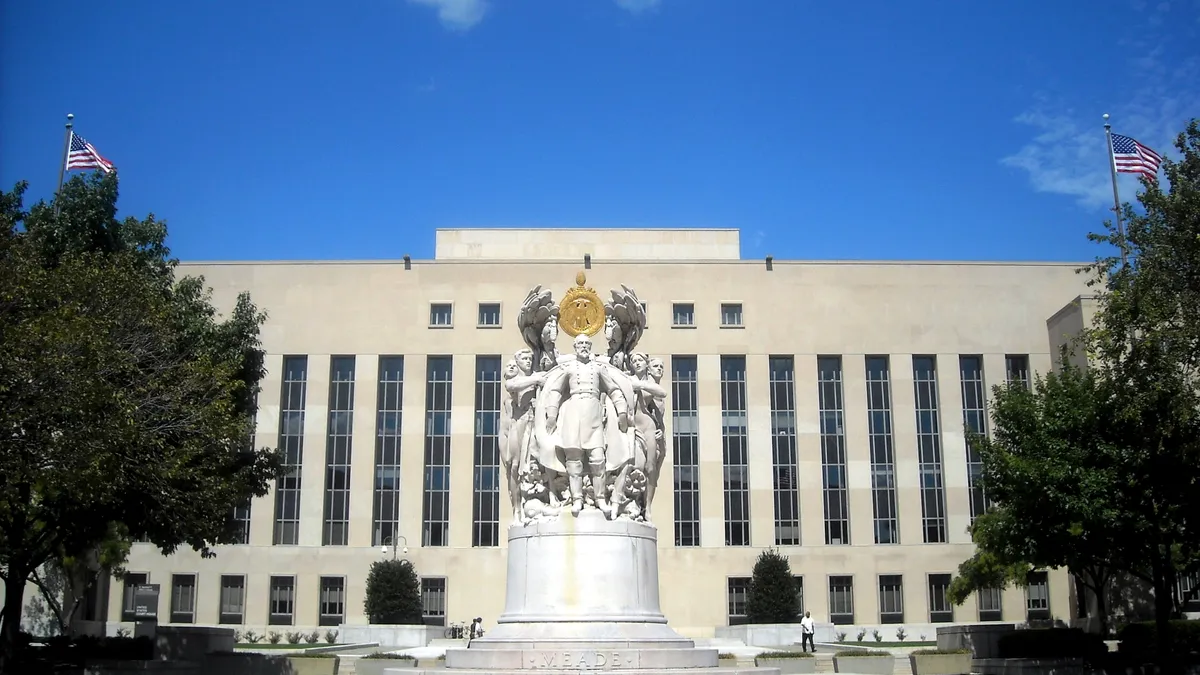Dive Brief:
- Almost two dozen states, along with generators and trade groups, have challenged the Obama Administration's emissions limits on new power plants, arguing the rule exceeds the federal government's authority by requiring unproven technology that is not widely available.
- Opponents, led by the state of West Virginia, filed opening briefs last week in the U.S. Court of Appeals for the District of Columbia Circuit. It is the latest in a series of challenges to the President's climate initiatives.
- Reply briefs from the U.S. Environmental Protection Agency and intervenors will be due in December. The Environmental Defense Fund and 18 states are lining up to defend the rule.
Dive Insight:
It is a familiar cast challenging Obama's limits on new power plants. Finalized a year ago, the rules established the first nationwide limits on carbon dioxide from new and modified fossil fuel-fired power plants.
According to opponents of the rule, the EPA overstepped its authority under the Clean Air Act by setting air pollution targets that are unattainable for coal plants, essentially mandating no more can be built without carbon capture technology, which they call unproven and unaffordable.
Some 23 states, led by West Virginia, in a petition told the court that the rule is "a cornerstone of EPA’s agenda to eliminate coal-fired power plants from the mix of energy generation relied on by States. It is designed—by virtue of an impossibly high technology standard—to eliminate the construction of new coal-fired power plants."
The new source standard "exceeds the agency’s authority," they wrote. "Congress has not granted EPA the power to choose winners and losers in the energy marketplace." E&E Publishing has hosted a copy of the filing here.
The D.C. Circuit has seen its share of energy policy recently. Last month, a ten-judge panel heard arguments over the government's Clean Power Plan, which mandates pollution reductions in existing power plants. The opponents in that case, also led by the West Virginia Attorney General, similarly argued that the EPA's standards were unattainable for coal plants, mandating their shutdown.
Backers of the rules are lining up to support the administration in court. The EPA's reply is due Dec. 14, followed by intervenors on Dec. 21. Environmental Defense Fund said it would be intervening on behalf of the government.
The two cases are expected to be critical for the future of power sector regulation and U.S. climate goals. As the Hill notes, the Clean Power Plan's goals will not be obtainable absent the new source rule.
After the Clean Power Plan hearing, energy lawyers told Utility Dive they expect the EPA to prevail in front of a friendly court, with the majority of judges appointed by Democratic presidents. That would likely set up a showdown at the U.S. Supreme Court, where much will depend on if and when a ninth Justice is confirmed.















